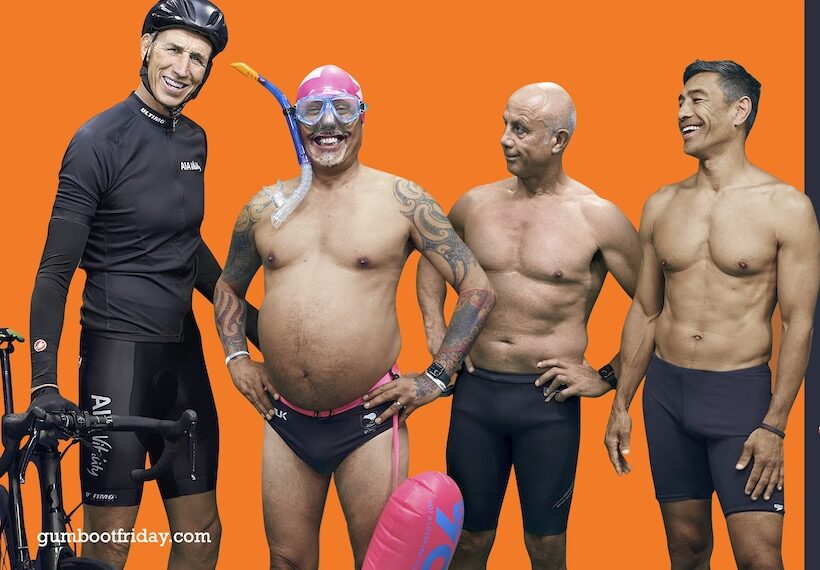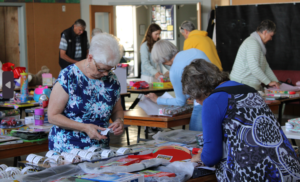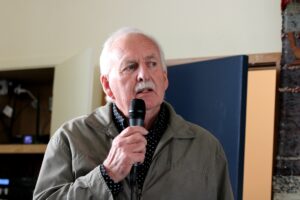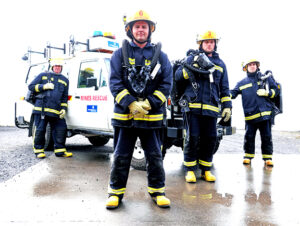Former All Black Ian Jones and mental health advocate Mike King will drop in to Whangamatā on February 20 on their journey to raise funds and awareness for youth mental health.
The Due Drop Hope Challenge, sponsored by Due Drop Foundation, is a 16-day relay event with eight competitors swimming, cycling and running from Cape Reinga to Wellington to raise awareness about the struggles young people face accessing counselling.
Also competing are former New Zealand triathlete Rick Wells, former international league star Richie Barnett, polio virus survivor Karim Rostami and Aucklanders David Mitchell, Geoff Everson, and Richard Hart.
They will stop in 16 towns on their journey including Whangamatā to engage with iwi, communities, schools and businesses encourage participation, whether it be running a kilometre with the team or meeting them at the finish line.
A specially designed ‘Helping Hand of Hope’ trophy will be given to each sponsor of the day as a tribute and reminder to lend young people the hope and voice in times of crisis.
Mr Jones said the group of “likeminded” and “probably somewhat crazy old mates” were putting themselves through their paces to bring attention to the hopelessness and profound suffering that afflicts young people in New Zealand, driving its “absolutely tragic” suicide statistics.
“Encouraged by our previous efforts in the Great Barrier Challenge, we hope to raise money and awareness around mental health for Mike King’s I Am Hope and Gumboot Friday charities,” he said.
“The distance between Cape Reinga and parliament is 1,063 kilometres, and our goal is to raise enough money to cover 1,063 counselling sessions.”
Mr Wells, who led the team in the Great Barrier to Auckland Challenge which raised $350,000 for St John, said the topic of teen suicide in New Zealand was one of national significance.
“New Zealand has one of the highest teenage suicide rates in the world. Everyday our children suffer from depression, anxiety, eating disorders and other mental health challenges, and we need more people to be talking about it, with urgency,” he said.
“Most of the participants in our group are not professional or seasoned athletes, but we’re putting ourselves through acute pain in the hope of the country taking notice of the pain our children are in.”
Mr King will lead a hīkoi to Parliament at the end of the relay and will meet with a government representative to convey the group’s concerns regarding the critical need for leadership and decisive action on improving youth mental health in New Zealand.




